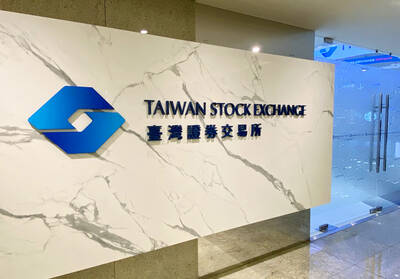Vice Media Group LLC has filed for bankruptcy protection and struck a deal to sell itself to creditors, a precipitous fall for the media upstart that once boasted a US$5.7 billion valuation.
The developments cap a tumultuous few months for the firm, which began as an alternative magazine in Montreal nearly three decades ago and captured the attention of young viewers globally with documentary-style videos. It shared a Pulitzer Prize in 2020 and multiple Emmy wins for Vice News Tonight.
Its rapid downfall underscores the challenges facing digital media companies, which are struggling as advertisers cut spending during an uncertain economy and route marketing toward technology platforms from Facebook and Google to TikTok.
The Brooklyn-based company listed both assets and liabilities in the range of more than US$500 million to as much as US$1 billion in a Chapter 11 petition filed in Southern District of New York.
In a separate statement, Vice announced that it had reached a deal with creditors including Fortress Investment Group LLC, Soros Fund Management LLC and Monroe Capital LLC to purchase its assets for US$225 million and assume significant liabilities.
The agreement allows for rival bidders to emerge.
“We will have new ownership, a simplified capital structure and the ability to operate without the legacy liabilities that have been burdening our business,” Vice Media cochief executive officers Bruce Dixon and Hozefa Lokhandwala said. “We look forward to completing the sale process in the next two to three months.”
Fortress Credit Corp ranked among the biggest secured creditors, with claims totaling about US$475 million, the filing showed yesterday.
Vice Media has secured commitments for debtor-in-possession financing from its creditors, including consent to use more than US$20 million of cash to keep its operations going.
Vice Media secured a US$450 million investment from private equity firm TPG Inc in 2017, which valued the firm at US$5.7 billion. The figure was startling for a media upstart, especially while so many of its industry peers struggled to generate profits. Other investors have included Walt Disney Co and Fox Corp.
In the filing, Vice Media estimated it has more than 5,000 creditors and that it would have funds for distribution to unsecured creditors.
Its bankruptcy filing is a milestone for the digital media arena.
Vice Media in February said that Nancy Dubuc was leaving the company after five years as chief executive officer, and then late last month it shuttered its flagship TV news show and laid off more than 100 employees.
Vice News Tonight started in 2016 as a newscast on HBO and won acclaim for its coverage of a white nationalist rally in Charlottesville, Virginia. HBO ended that partnership in 2019.
Recently, the show aired on Vice TV, the company’s cable channel.
BuzzFeed Inc earlier this year shut down its news operation and online publisher Insider Inc said it would lay off about 10 percent of its employees.

Taiwan Semiconductor Manufacturing Co (TSMC, 台積電) secured a record 70.2 percent share of the global foundry business in the second quarter, up from 67.6 percent the previous quarter, and continued widening its lead over second-placed Samsung Electronics Co, TrendForce Corp (集邦科技) said on Monday. TSMC posted US$30.24 billion in sales in the April-to-June period, up 18.5 percent from the previous quarter, driven by major smartphone customers entering their ramp-up cycle and robust demand for artificial intelligence chips, laptops and PCs, which boosted wafer shipments and average selling prices, TrendForce said in a report. Samsung’s sales also grew in the second quarter, up

LIMITED IMPACT: Investor confidence was likely sustained by its relatively small exposure to the Chinese market, as only less advanced chips are made in Nanjing Taiwan Semiconductor Manufacturing Co (TSMC, 台積電) saw its stock price close steady yesterday in a sign that the loss of the validated end user (VEU) status for its Nanjing, China, fab should have a mild impact on the world’s biggest contract chipmaker financially and technologically. Media reports about the waiver loss sent TSMC down 1.29 percent during the early trading session yesterday, but the stock soon regained strength and ended at NT$1,160, unchanged from Tuesday. Investors’ confidence in TSMC was likely built on its relatively small exposure to the Chinese market, as Chinese customers contributed about 9 percent to TSMC’s revenue last

Taiwan and Japan will kick off a series of cross border listings of exchange-traded funds (ETFs) this month, a milestone for the internationalization of the local ETF market, the Taiwan Stock Exchange (TWSE) said Wednesday. In a statement, the TWSE said the cross border ETF listings between Taiwan and Japan are expected to boost the local capital market’s visibility internationally and serve as a key for Taiwan becoming an asset management hub in the region. An ETF, a pooled investment security that is traded like an individual stock, can be tracked from the price of a single stock to a large and

Despite global geopolitical uncertainties and macroeconomic volatility, DBS Bank Taiwan (星展台灣) yesterday reported that its first-half revenue rose 10 percent year-on-year to a record NT$16.5 billion (US$537.8 million), while net profit surged 65 percent to an unprecedented NT$4.4 billion. The nation’s largest foreign bank made the announcement on the second anniversary of its integration with Citibank Taiwan Ltd’s (花旗台灣) consumer banking business. “Taiwan is a key market for DBS. Over the years, we have consistently demonstrated our commitment to deepening our presence in Taiwan, not only via continued investment to support franchise growth, but also through a series of bolt-on acquisitions,” DBS